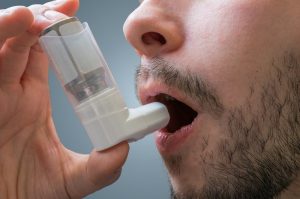Background:
Anxiety and depression are at an all-time high, with more diagnoses and higher disability ratings (Spitchak, 2020). Mental health disorders like this have been linked to inflammation in the gut, as the immune system is activated by stress (Spitchak, 2020). Cognitive Behavioral Therapy and anxiety-reducing medications like benzodiazepines are the current gold standard for managing long-term chronic stress and anxiety, as well as short-term needs like panic or anxiety attacks (Ballenger, 2000). These methods do help, but some people have drug-resistant depression, and others simply prefer a greater variety of options to manage their symptoms. Getting outside more has long been accepted as a mental health boost, both from the calming peaceful environment to the vitamin D exposure, to the clean air, and even the soil microbes (Asprey, 2021). A less conventional option than a simple walk may exist and appears to be emerging after 16 plus years of research by Chris Lowry, who has been working with the soil bacterium M. vaccae since the early 2000s.
Continue reading “Are Your Microbes Making You Anxious?”

